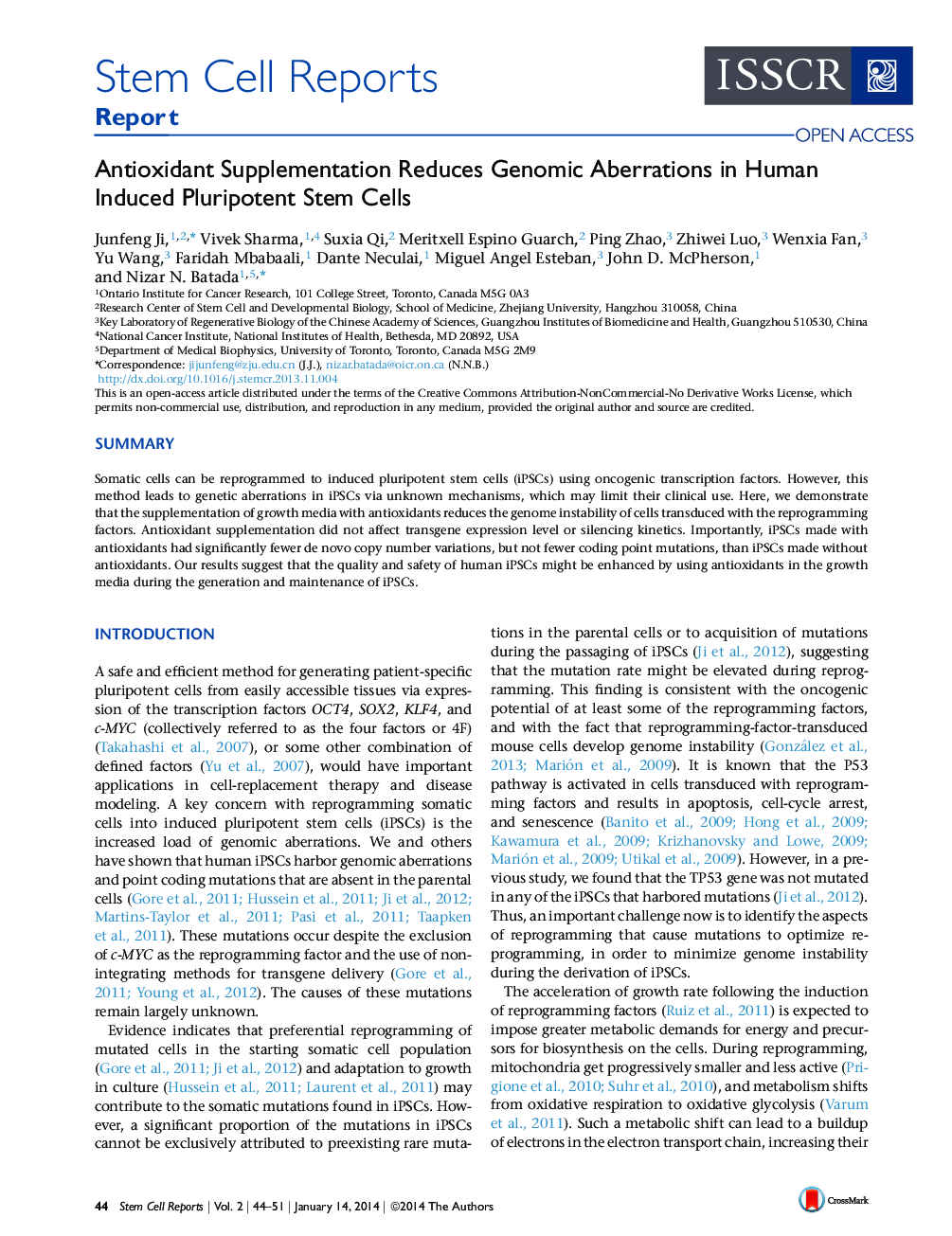| Article ID | Journal | Published Year | Pages | File Type |
|---|---|---|---|---|
| 2093664 | Stem Cell Reports | 2014 | 8 Pages |
•During reprogramming, oxidative stress is elevated•Antioxidants reduce genome instability during reprogramming•iPSCs made in the presence of antioxidants have fewer de novo genomic aberrations
SummarySomatic cells can be reprogrammed to induced pluripotent stem cells (iPSCs) using oncogenic transcription factors. However, this method leads to genetic aberrations in iPSCs via unknown mechanisms, which may limit their clinical use. Here, we demonstrate that the supplementation of growth media with antioxidants reduces the genome instability of cells transduced with the reprogramming factors. Antioxidant supplementation did not affect transgene expression level or silencing kinetics. Importantly, iPSCs made with antioxidants had significantly fewer de novo copy number variations, but not fewer coding point mutations, than iPSCs made without antioxidants. Our results suggest that the quality and safety of human iPSCs might be enhanced by using antioxidants in the growth media during the generation and maintenance of iPSCs.
Graphical AbstractFigure optionsDownload full-size imageDownload as PowerPoint slide
